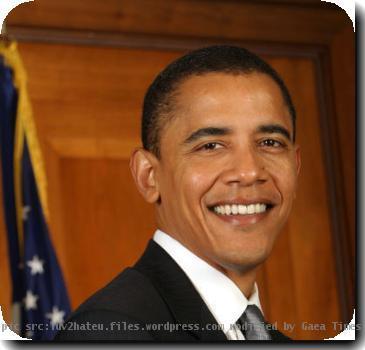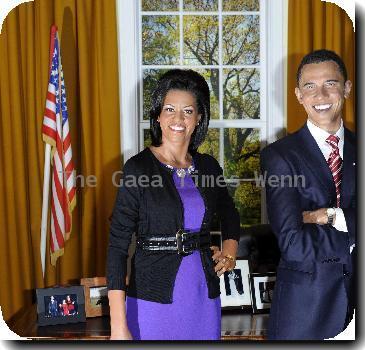Rift grows between Congress and war leaders as lawmakers question progress in Afghanistan
By Pauline Jelinek, APWednesday, June 16, 2010
Dem lawmakers challenge Pentagon on Afghan war
WASHINGTON — A schism deepened Wednesday between U.S. war leaders and Congress as lawmakers — crucial Democrats among them — challenged Pentagon assertions that progress is picking up in Afghanistan.
“I wouldn’t call it eroding,” Democratic Sen. Carl Levin of Michigan said of once-solid Democratic support for President Barack Obama’s war strategy. “But there’s a lot of fair concern.”
Congressional hearings stepped up pressure on the Pentagon, with Defense Secretary Robert Gates complaining about negative perceptions taking root in Washington about the war. Another top military official acknowledged feeling “angst” about the conflict.
But military leaders said the U.S. effort is advancing. “I think that we are regaining the initiative,” Gates told a skeptical Senate panel. “I think that we are making headway.”
The debate comes six months after Obama ordered 30,000 more Americans to the fight with the promise that troop withdrawals would begin in July 2011. That promise helped to placate Democrats who did not want an enduring troop commitment in Afghanistan.
But with the intervening months proving to be a long and deadly slog, and November elections approaching, it’s becoming questionable whether Democratic backing can hold. And lawmakers were reminded Wednesday that there is no deadline for completing a troop pullout, and that the pace of withdrawal will depend on circumstances at the time.
Nowhere were congressional concerns more evident than in Wednesday’s hearing by the Senate Appropriations Committee with Gates and Adm. Mike Mullen, chairman of the Joint Chiefs of Staff.
Democratic Sen. Patty Murray of Washington said she was frustrated by the number of deaths among the Army Stryker units from her home state, while Sen. Byron Dorgan, D-N.D., asked whether it was even possible for the Afghan government to gain control of the country’s disparate tribes.
“We’ve committed so many lives, so much money, here, and we’ve neglected so many things inside the borders of the United States,” said Vermont Democratic Sen. Patrick Leahy.
Gates and Mullen sought to assure the lawmakers that the fight was worth it.
“We all have angst about this,” Mullen said, but “we’ve put the resources in.”
In a separate Senate hearing, Gen. David Petraeus, who oversees the war as head of U.S. Central Command, compared the conflict to a roller coaster ride with ups and downs similar to what was seen in Iraq.
“This is a tough, tough business,” he said. ” And those who are living it have to keep their eye on the horizon to ensure the trajectory is generally upward.”
Military officials say most of the extra troops have arrived but it will take several more months before marked progress can be shown.
Even with reinforcements, the challenges are numerous. Crucial campaigns in the Afghan towns of Marjah and Kandahar are moving slower than expected; NATO remains short on personnel to train the Afghan security force; the Afghan government remains rife with corruption; and a recent spate of Taliban attacks has put June on track to become the deadliest month in the war.
As of Wednesday morning, at least 45 NATO members, including 28 Americans, were killed in Afghanistan in June. That mid-month tally compares with 51 NATO deaths in May and 33 in April.
Much of the debate on Capitol Hill has focused on when U.S. troops should leave. Obama’s promise to start the withdrawal in July 2011 helped him with Democrats. But it prompted Republican charges that the U.S. was encouraging the Taliban and demoralizing its allies by setting a hard and fast withdrawal date.
To allay these fears, military officials have repeatedly said the number of troops and how soon they would leave will depend entirely on how the war is going.
They did so again Wednesday.
“We’re just not going to know until we get much closer to July 2011 how many troops and where they’ll come from, the pace and the place,” Mullen said.
During a House hearing Wednesday, California Republican Rep. Buck McKeon asked Petraeus what conditions would have to be in place for troops to leave.
Petraeus said there would have to be better security and governance, and an Afghan security force able to contribute to that stability.
Asked what happens if those conditions don’t exist, Petraeus said he would recommend a delay in the withdrawal.
“If that’s what’s necessary, that’s what I will do,” he said.
Petraeus’ remarks were not likely to change that perception among many Afghans that U.S. support for the war is ebbing.
Afghans still have bitter memories of the 1980s and early 1990s, when the U.S. promised not to abandon the region after the withdrawal of the Soviet Union — then did just that. Civil war and the rise of the Taliban to power followed.
“Many Afghan officials and officers, and allied officers and diplomats, are at best confused and at worst privately believe that we will leave,” wrote Anthony Cordesman with the Center for Strategic and International Studies in an analysis published Wednesday.
Cordesman wrote that the war “may well still be winnable, but it is not going to be won by denying the risks, the complexity and the time that any real hope of victory will take.”
Associated Press writers Robert Reid in Kabul, Afghanistan, and Barry Schweid in Washington contributed to this report.
Tags: Afghanistan, Asia, Barack Obama, Central Asia, Legislature Hearings, North America, Political Organizations, Political Parties, United States, Washington





